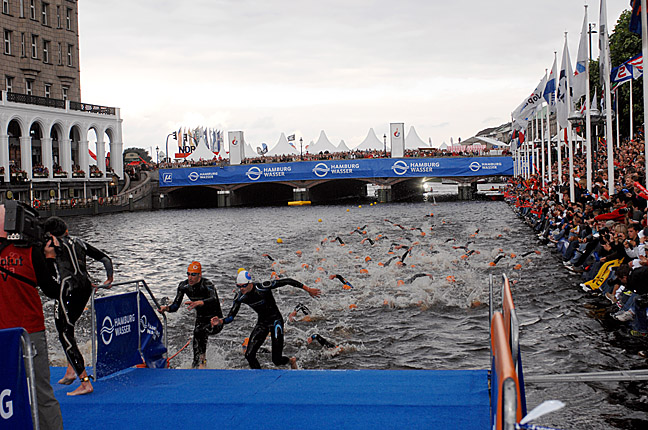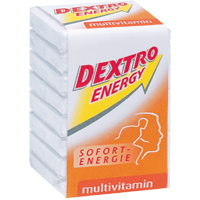No US, Canadian races in 2010 ITU WC series
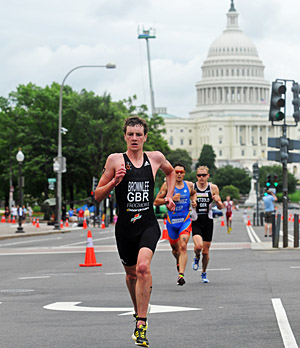
After an exciting 2009 debut in which Alistair Brownlee and Emma Moffat emerged as superstars and great races televised around the globe boosted the sport of triathlon, the International Triathlon Union’s 7-race Dextro Energy World Championship Series has shaken up their 2010 schedule.
The good news is that they have added the fabulous 2000 Olympic Triathlon course at Sydney as the season opener on April 11. The sad news is that the spectacular Washington D.C. venue and the great fields and great races it produced against its iconic monuments as a backdrop will not be back on the 2010 schedule. The curiously bleak news on top of that is that the fledgling series will have no races in the United States, Canada and Mexico, or in the still-emerging triathlon power Brazil.
That’s right. The World Championship Series will have five races in Europe, one in Asia, and one in Oceania – and none in North America, the birthplace of the sport, the worldwide leader in age group participation and a major player in worldwide sponsorship dollars. And zip in South America, where the International Olympic Committee just committed to hold the 2016 Olympics in Rio de Janeiro.
But before pointing fingers and pinning blame, realize that no one in the game is at all happy about this state of affairs, least of all the ITU. If anything is the cause it is a more ambitious, bigger budget business model for the World Championship Series races. These races, in many cases, depend upon government subsidies in European and Asian countries which find the costs worth it to showcase their cities with triathlon as the backdrop. In the US, and apparently in Canada, costs for television production, municipal support for event road closures and safety officials, and even the relatively modest prize purse has currently raised the bar too high – at least for the coming year – for non government-supported promoters in the Americas.
“We all thought Washington DC was a wonderful venue and it was a very well-done, fantastic spectacle for the sport,” said Paul Coleman, Managing Director of the Dextro Energy Triathlon – ITU World Championship Series. “We loved it and both the ITU and the organizers in Washington are both keen to be part of the series going forward after 2010. The immediate problem is that Washington D.C. is a very expensive city in which to organize and to put on an event. Putting on that first race there was a big investment on our part, our partners, and for the city and the organizers. But because of the costs, we decided that we should all take a breather and see where we stand in 2011.”
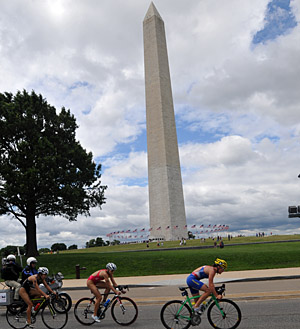
Coleman didn’t specify the precise budget shortfalls, but gave some hints to the scope of the costs. ITU World Championship Series requirements include $150,000 prize money and, “in a majority of cases TV production costs” average $300,000. In Washington DC, he says, “the greatest financial restriction is the fact that Washington DC is a very expensive city to organize the event – you need significant funding for police and road closures, costs for staff to run the event, costs for hospitality.”
While he is not privy to the details of the World Championship Series budgets, USA Triathlon CEO Skip Gilbert has an idea what the entire production of a WCS race might involve. “My assumption is that it will cost at least $1 million to cover all of the costs – or somewhere in that vicinity,” said Gilbert.
With stronger sponsorship participation by US corporations and less responsibility for television costs, US races such as the Life Time Fitness – Toyota Cup races cost signifcantly less to produce, added Gilbert.
One of the key differences between the US and Europe is the matter of television costs. The ITU requires WCS events to offer live television broadcasts as well as making a taped and edited broadcast available for 39 broadcasters involved in worldwide distribution. At Washington, the live broadcast was filmed by Comcast on site and aired live in Germany and an edited one hour show was aired later in the US asnd elsewhere. But the main sticking point is that host broadcasters are willing to tackle the job in Europe, but not in the US. “There is greater demand for televised triathlon in Europe and much greater opportunity to find a host broadcaster willing to shoulder the cost,” said Coleman. “In the USA, things are slightly different. Very likely in most cases we or the organizer would pay.” Certainly the model for triathlon coverage in the USA has been set by the NBC telecast of Ironman Hawaii in which the WTC pays the majority of television time and production costs and makes back what it can from advertising.
The simple fact is that while US networks pay tremendous fees for the rights to broadcast the major sports and the Olympics, sports like triathlon must pay to play.
Coleman cited that the World Championship Series wanted to promote the sport by combining the elite races with large age group triathlons which would expose the Olympic-style racing to a receptive, grass-roots audience. Hamburg is the model there, drawing Chicago-sized age group fields. The age group races also helps boost the crowd for the elite races – in Washington DC, that was crucial as the monuments looked good on TV but the crowds were relatively sparse.
USA Triathlon executive director Skip Gilbert also suggested that age group races might provide key revenue that would make the budget at Washington DC feasible. “Unlike other countries where governments cover a lot of the costs, US race directors need a large age group field to cover the costs,” said Gilbert. “But unless you have 5,000 to 6,000 age group athletes competing, it is impossible.” The math is relatively simple. If you get 6,000 age group entries at $200 apiece, the gross is $1.2 million, which less expenses puts US races in the ballpark to meet the WCS budgets.
Gilbert added that in most cases, a new race in a large city would normally take a few years to build up to a field of 6,000. The LA Triathlon, for example, still has a field of less than half of Chicago. But certainly Washington DC was already primed to meet that standard, as its roughly 2,000 age group slots sold out within a short time of announcement. But while the Washington DC race in September draws the big numbers and indicated a hunger for another large scale age group race, two factors cut down the field in June: One, the series was contractually required to provide live coverage in Germany. To synch with the time difference, the race organizers could not run enough waves to accommodate a field three times the size. Two, already expensive road closure costs would have multiplied with the longer race day.
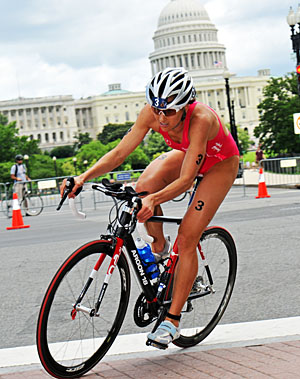
US elite triathletes all expressed regret there would be no North and South American races in the sparkling new series. But they all understood the economic factors and expressed sympathy to organizers.
“It is a shame but I understand that financially it would not work out for now,” said Sarah Haskins, the top US woman in the 2009 World Championship Series, who led the Washington DC event into the run before finishing 4th. “It is unfortunate that the US could not be a part of the 2010 series. Competing on all continents around the world is ideal. But looking at the schedule, several of the European races are back to back and will help make the athletes' travel more manageable.”
Haskins added, “It is shame that we can't increase the popularity of the series here in the US. Right now we are not part of a great series which would help draw a lot of young kids into the sport. As far as sponsorship opportunities here in the US, I am not sure how it works to set it up in the US. I know the World Championship Series has a title sponsor in Dextro Energy and major media sponsors in Europe. So I am not sure if the series’ international title sponsors are open to share with major US corporate sponsors like Pepsi or Toyota. I know that great races in the US like Hy-Vee rely heavily on sponsorships with major corporations. If they are not allowed to be part of the race, the US will struggle to have these races happen here.”
Andy Potts, who finished 5th at Washington DC, said, “It is kind of sad that North and South America will not host a World Championship Series race in 2010. I sympathize with race directors because I know it is hard to put together a race – whether it is non-drafting or draft legal. At the same time, the promotion of our sport needs high quality events with the best competitors in the world. I am pretty bummed that this means I have to go outside the country to find the highest quality draft legal series races. I don’t know if I want to try to do that. I have had success branching into non-drafting races from short course to Ironman. I like to do both types of racing and stay closer to my family, and this will make it harder to do that.”
Recent Toyota Cup Champion Matt Reed expressed the feelings of many US triathletes when he said, “It’s a big disappointment not to have a World Championship Series race in America as they did last year. But in today’s economy, that’s how it rolls. Not to say that we might not have one in 2011. But many of us started on the World Cup circuit and developed skills which carry over to every type of racing. So we would like to showcase Olympic-style racing at home.”
There is still a slim chance that a US city might step up to the plate for a last minute bid for late May date for an eighth race that the ITU says might fit in the 2010 World Championship Series calendar.
“It is very difficult to meet the economic model, but we are still looking for places in the US, for this year or the next, to bring it back,” said Gilbert. “So we are working with cities to create an economic model which works for the community and the race director.”
So, too does the ITU hope to make the WCS fully global. “We feel that we can provide an attractive set of benefits to the type of iconic international cities we are seeking to host our series,” said Coleman. “And it is my job to capture the imagination of those cities to make them see the value of their investment.” That said, Coleman added, “I think it is only a matter of time. We are only in our second year and we should realize that we had a successful launch, but that this is by no means a finished product. As we move forward, I believe we will get successful bids from great cities in the US, Canada and South America.”
2010 Dextro Energy Triathlon – ITU World Championship Series Calendar
April 11 – Sydney, Australia
May 8-9 – Seoul, South Korea
June 5-6 – Madrid, Spain
July 17-18 Hamburg, Germany
July 24-25 – London, England
August 14-15 – Kitzbuehel, Austria
September 11-12 – Budapest, Hungary – Grand Final


